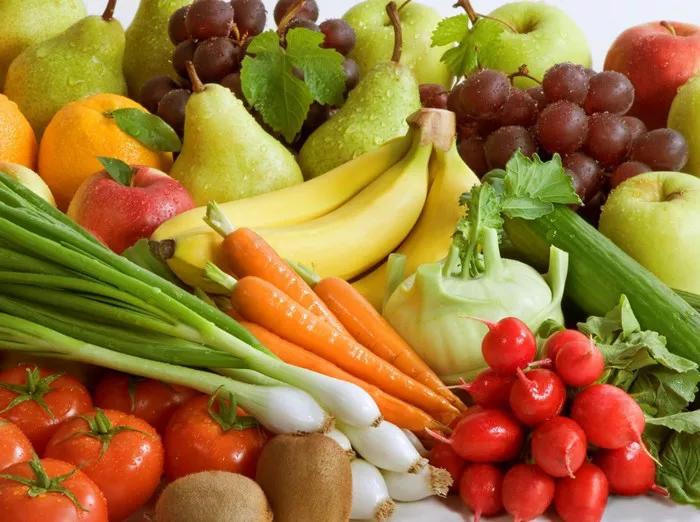Maintaining a healthy diet is a key component of overall well-being. The food choices we make can have a significant impact on our energy levels, immune function, weight management, and long-term health. A healthy diet should include a variety of nutritious foods that provide essential nutrients, promote satiety, and support overall vitality. In this article, we will explore the key principles of a healthy diet and provide guidance on the types of foods you should include in your daily meals.
Balanced Macronutrients
A healthy diet is built on a foundation of balanced macronutrients. Macronutrients include carbohydrates, proteins, and fats, which are essential for providing energy and supporting various bodily functions.
1. Carbohydrates:
Carbohydrates are the body’s primary source of energy. They provide fuel for the brain, muscles, and other organs. When choosing carbohydrates, focus on complex carbohydrates that are rich in fiber and nutrients. These include whole grains (such as brown rice, quinoa, and oats), legumes (beans, lentils), fruits, and vegetables. These foods provide sustained energy and promote digestive health.
2. Proteins:
Proteins are the building blocks of our body. They are crucial for repairing tissues, supporting immune function, and maintaining muscle mass. Include a variety of lean protein sources in your diet, such as poultry, fish, lean meats, tofu, tempeh, legumes, nuts, and seeds. Aim for a balanced intake of both animal and plant-based proteins to ensure you obtain a wide range of essential amino acids.
3. Fats:
Healthy fats play a vital role in supporting cell function, protecting organs, and aiding nutrient absorption. Include sources of unsaturated fats in your diet, such as avocados, nuts, seeds, olive oil, and fatty fish (like salmon and mackerel). These fats are beneficial for heart health and can help reduce inflammation in the body.
Nutrient-Dense Foods
In addition to macronutrients, it is important to consume a variety of nutrient-dense foods that provide essential vitamins and minerals. These foods are rich in antioxidants, phytochemicals, and other compounds that support overall health and protect against chronic diseases.
1. Fruits and Vegetables:
Fruits and vegetables are packed with vitamins, minerals, fiber, and antioxidants. Aim to incorporate a colorful variety of fruits and vegetables into your diet. Include leafy greens, berries, citrus fruits, cruciferous vegetables (such as broccoli and cauliflower), and other seasonal produce. These foods provide essential nutrients and help reduce the risk of chronic diseases.
2. Whole Grains:
Whole grains provide important nutrients and fiber that are beneficial for digestion and overall health. Choose whole grains over refined grains whenever possible. Opt for options like brown rice, whole wheat bread and pasta, quinoa, oats, and barley. These foods offer sustained energy and help keep you feeling full for longer.
3. Lean Proteins:
Lean proteins, such as poultry, fish, lean meats, tofu, and legumes, provide essential amino acids and important nutrients like iron and zinc. Choose lean cuts of meat, remove visible fats, and opt for cooking methods like grilling, baking, or steaming. Plant-based proteins like legumes, lentils, and tempeh are excellent alternatives for those following a vegetarian or vegan diet.
4. Dairy or Dairy Alternatives:
Dairy products (or their alternatives for those who are lactose intolerant or follow a plant-based diet) are rich in calcium, vitamin D, and protein. Choose low-fat or non-fat options like yogurt, milk, and cheese. If you prefer non-dairy alternatives, opt for fortified plant-based milks like almond, soy, or oat milk.
5. Healthy Snacks:
Incorporate healthy snacks into your diet to keep you satisfied between meals. Opt for nutrient-dense options like fresh fruits, raw vegetables with hummus, unsalted nuts and seeds, yogurt, or homemade energy bars. These snacks provide a balance of macronutrients and keep you fueled throughout the day.
Hydration
Proper hydration is a fundamental aspect of a healthy diet. Water is essential for regulating body temperature, digestion, nutrient absorption, and the elimination of waste products. Aim to drink an adequate amount of water throughout the day to stay hydrated. It is recommended to consume at least 8 glasses (64 ounces) of water per day. Adjust your intake based on your activity level, climate, and individual needs. Remember, beverages like herbal tea, infused water, and low-sugar beverages can also contribute to your hydration goals.
Mindful Eating
In addition to focusing on the types of foods you eat, it is important to practice mindful eating. Mindful eating involves paying attention to your body’s hunger and fullness cues, eating slowly, and savoring each bite. This approach helps prevent overeating, promotes better digestion, and allows you to fully enjoy the flavors and textures of your meals. Avoid distractions while eating, such as watching TV or using electronic devices, as this can lead to mindless eating and less satisfaction from your meals.
Personalization
While general guidelines for a healthy diet exist, it is important to remember that individual needs may vary. Each person has unique dietary requirements based on factors like age, sex, activity level, and health conditions. It is advisable to consult with a healthcare professional or registered dietitian to assess your specific nutritional needs and receive personalized recommendations.
Conclusion
Maintaining a healthy diet involves choosing a variety of nutrient-dense foods, balancing macronutrients, staying hydrated, and practicing mindful eating. By incorporating a wide range of fruits, vegetables, whole grains, lean proteins, and healthy fats into your meals, you can nourish your body with the essential nutrients it needs to thrive. Remember, a healthy diet is a lifelong commitment to overall well-being, and small, sustainable changes can lead to significant improvements in your health and vitality.























